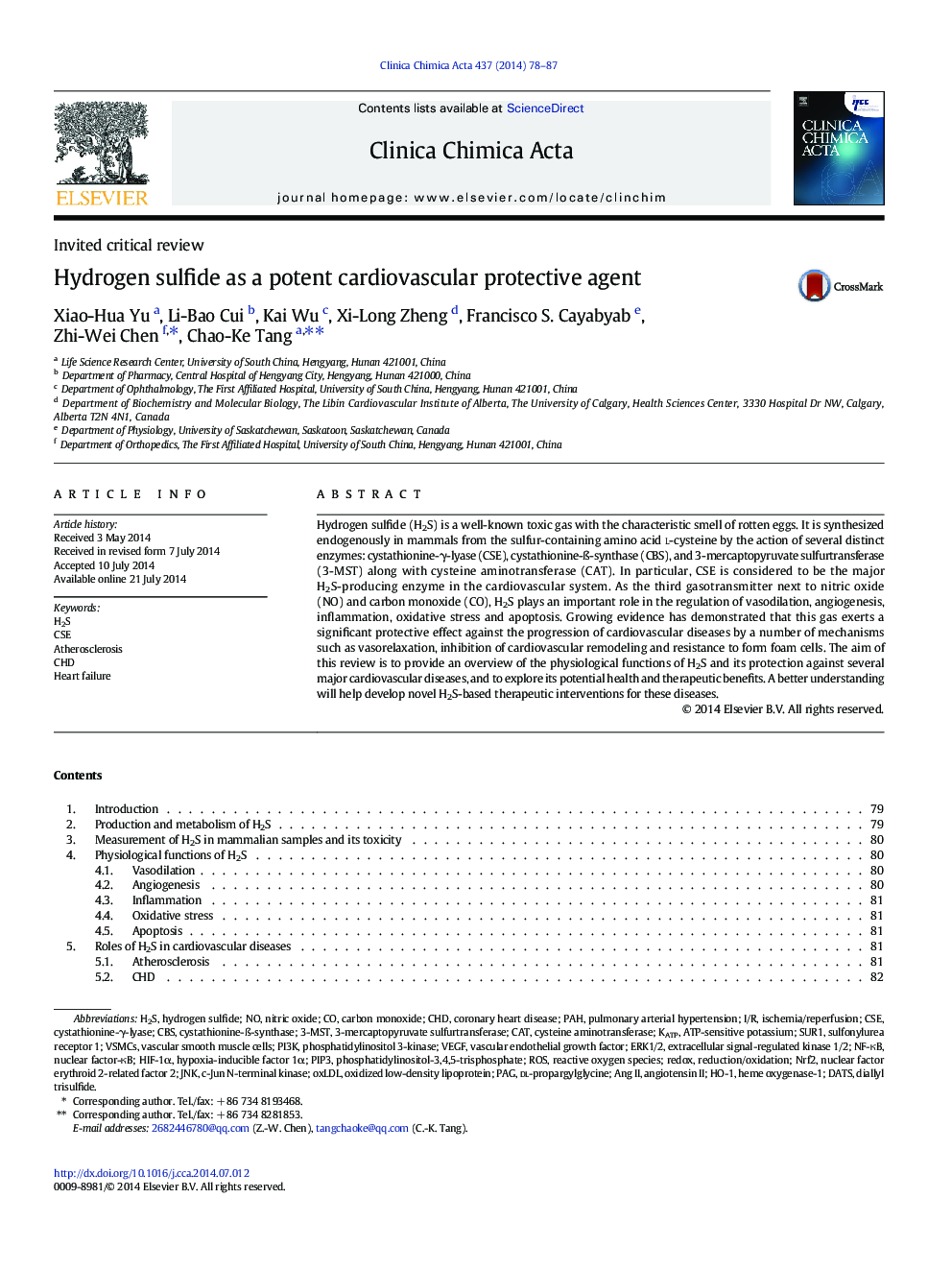| Article ID | Journal | Published Year | Pages | File Type |
|---|---|---|---|---|
| 1965370 | Clinica Chimica Acta | 2014 | 10 Pages |
•H2S has multiple biological actions.•The review aims to summarize recent data of H2S-related cardiovascular protection.•H2S-releasing drugs have therapeutic potential for cardiovascular diseases.
Hydrogen sulfide (H2S) is a well-known toxic gas with the characteristic smell of rotten eggs. It is synthesized endogenously in mammals from the sulfur-containing amino acid l-cysteine by the action of several distinct enzymes: cystathionine-γ-lyase (CSE), cystathionine-ß-synthase (CBS), and 3-mercaptopyruvate sulfurtransferase (3-MST) along with cysteine aminotransferase (CAT). In particular, CSE is considered to be the major H2S-producing enzyme in the cardiovascular system. As the third gasotransmitter next to nitric oxide (NO) and carbon monoxide (CO), H2S plays an important role in the regulation of vasodilation, angiogenesis, inflammation, oxidative stress and apoptosis. Growing evidence has demonstrated that this gas exerts a significant protective effect against the progression of cardiovascular diseases by a number of mechanisms such as vasorelaxation, inhibition of cardiovascular remodeling and resistance to form foam cells. The aim of this review is to provide an overview of the physiological functions of H2S and its protection against several major cardiovascular diseases, and to explore its potential health and therapeutic benefits. A better understanding will help develop novel H2S-based therapeutic interventions for these diseases.
